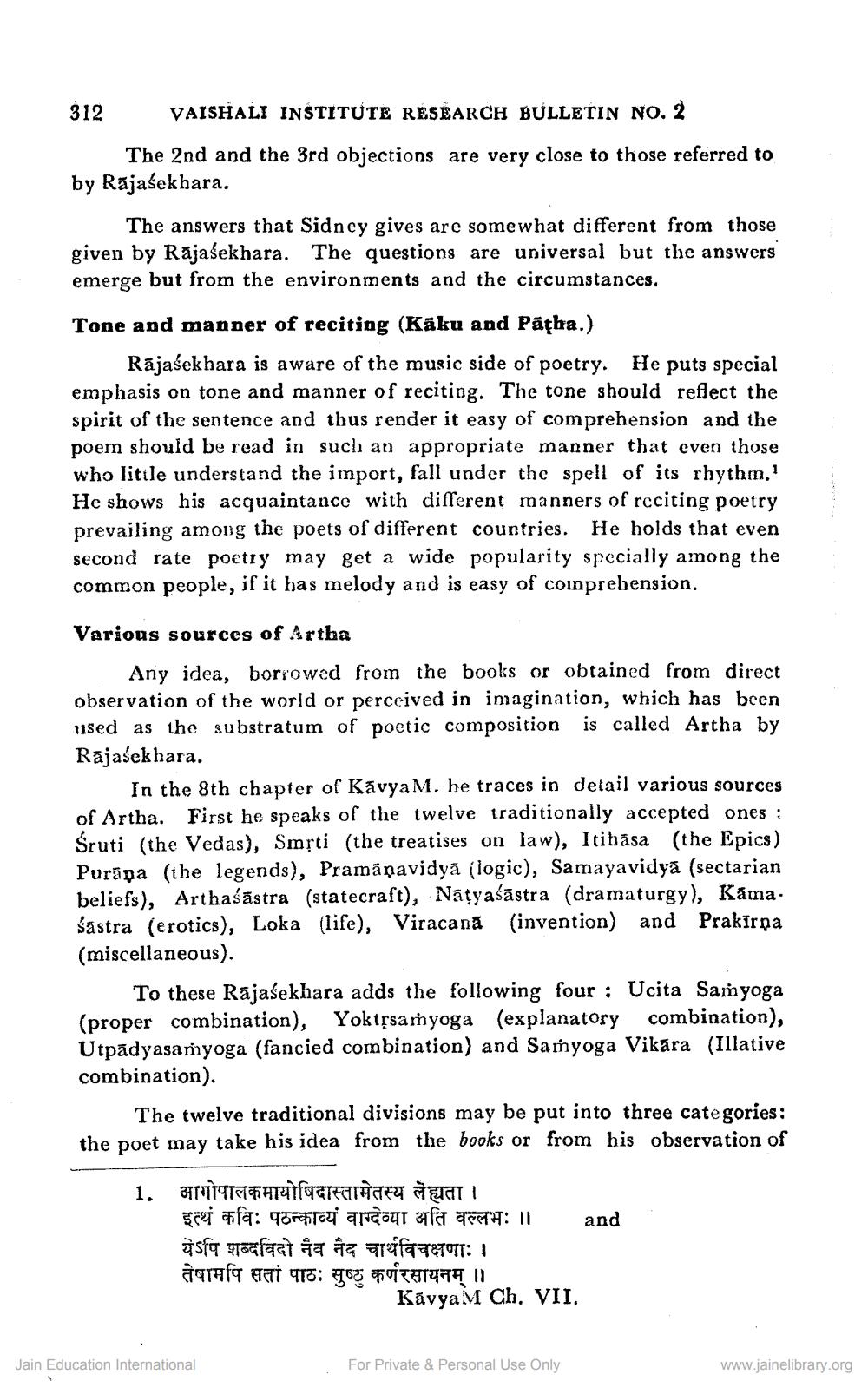________________
312
VAISHALI INSTITUTE RESEARCH BULLETIN NO. 2
The 2nd and the 3rd objections are very close to those referred to by Rajasekhara.
The answers that Sidney gives are somewhat different from those given by Rajasekhara. The questions are universal but the answers emerge but from the environments and the circumstances.
Tone and manner of reciting (Kāku and Patha.)
Rājasekhara is aware of the music side of poetry. He puts special emphasis on tone and manner of reciting. The tone should reflect the spirit of the sentence and thus render it easy of comprehension and the poem should be read in such an appropriate manner that even those who little understand the import, fall under the spell of its rhythm.! He shows his acquaintance with different manners of reciting poetry prevailing among the poets of different countries. He holds that even second rate poetry may get a wide popularity specially among the common people, if it has melody and is easy of coinprehension.
Various sources of Srtha
Any idea, borrowed from the books or obtained from direct observation of the world or perceived in imagination, which has been used as the substratum of poetic composition is called Artha by Rajasekhara.
In the 8th chapter of Kavya M. he traces in detail various sources of Artha. First he speaks of the twelve traditionally accepted ones ; Sruti (the Vedas), Smrti (the treatises on law), Itihasa (the Epics) Purāpa (the legends), Pramāpavidyā (logic), Samayavidyā (sectarian beliefs), Arthaśāstra (statecraft), Nātyaśāstra (dramaturgy), Kama. śāstra (erotics), Loka (life), Viracanã (invention) and Prakirpa (miscellaneous).
To these Rājasekhara adds the following four : Ucita Samyoga (proper combination), Yoktřsamyoga (explanatory combination), Utpadyasamyoga (fancied combination) and Saṁyoga Vikara (Illative combination).
The twelve traditional divisions may be put into three categories: the poet may take his idea from the books or from his observation of
1. BITTATTATUTSacrarea gati
gret afa: qorirodi argaar afa H: 11 and येऽपि शब्दविदो नैव नैद चार्थविचक्षणाः । तेषामपि सतां पाठः सुष्टु कर्णरसायनम् ॥
Kavya M Ch. VII,
Jain Education International
For Private & Personal Use Only
www.jainelibrary.org




